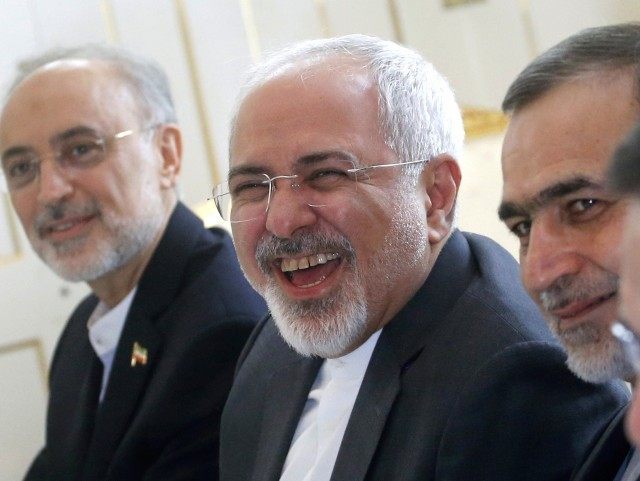As the list of Western concessions to the Iranian regime continues to grow, Iran is demanding the lifting of a worldwide arms embargo as a condition of any nuclear deal. Thus far, the U.S. is resisting, but Russia and China have already agreed in part.
Iran is fighting a wide range of wars, including the Syrian civil war and the war with ISIS and other factions inside Iraq. In addition, Iran backs Hezbollah in Lebanon, the Houthi rebels in Yemen, and maintains a global terrorist network.
The Business Insider reports that the U.S. negotiating team opposes the Iranian demand, ostensibly out of concern for how Iran intends to use any arms it purchases. However, the U.S. has already agreed to offer Iran some amount of immediate relief from economic sanctions that could see tens of billions of dollars flow to Iranian-backed terror groups, as well as the Iranian Revolutionary Guard Council, which plays a leading role in suppressing internal dissent within Iran itself.
In addition, the U.S. has agreed to lift some non-nuclear sanctions as part of the deal. Iran believes, not unreasonably, that by driving a hard bargain, it can extract further concessions from the Obama administration, which is desperate to sign a deal.
There is some speculation that even if a formal deal is not concluded by this week’s shifting deadlines, the parties will agree to a set of principles that allow President Barack Obama to claim success–and evade opposition in the U.S. Congress.
Experts debate whether the poor negotiating performance of the American team is the result of incompetence, idealism, or a strategy to strengthen Iran as a regional bulwark against Sunni regimes and Israel, in the hope of encouraging it to desist from terror and aggression.
Israeli Prime Minister Benjamin Netanyahu, who has opposed the negotiations and the terms of the emerging deal, warned Monday that Iran would not only pursue nuclear weapons, but conventional terror as well.

COMMENTS
Please let us know if you're having issues with commenting.